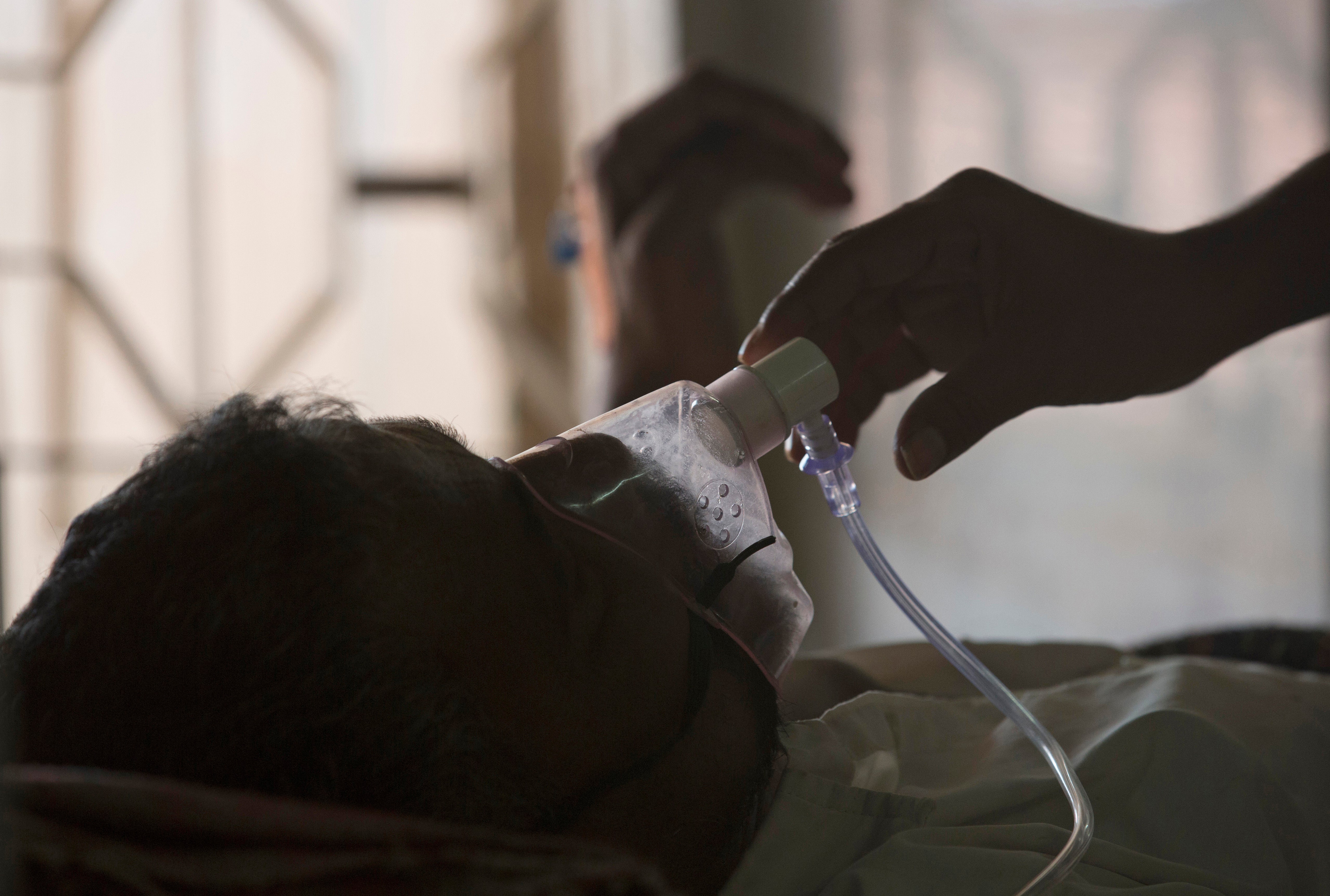WHO: Tuberculosis cases rise for the first time in years
The World Health Organization says the number of people infected with tuberculosis, including the kind resistant to drugs, rose globally for the first time in years in 2021

Your support helps us to tell the story
From reproductive rights to climate change to Big Tech, The Independent is on the ground when the story is developing. Whether it's investigating the financials of Elon Musk's pro-Trump PAC or producing our latest documentary, 'The A Word', which shines a light on the American women fighting for reproductive rights, we know how important it is to parse out the facts from the messaging.
At such a critical moment in US history, we need reporters on the ground. Your donation allows us to keep sending journalists to speak to both sides of the story.
The Independent is trusted by Americans across the entire political spectrum. And unlike many other quality news outlets, we choose not to lock Americans out of our reporting and analysis with paywalls. We believe quality journalism should be available to everyone, paid for by those who can afford it.
Your support makes all the difference.The number of people infected with tuberculosis, including the kind resistant to drugs, rose globally for the first time in years, according to a report issued Thursday by the World Health Organization.
The U.N. health agency said more than 10 million people worldwide were sickened by tuberculosis in 2021, a 4.5% rise from the year before. About 1.6 million people died, it said.
WHO said about 450,000 cases involved people infected with drug-resistant TB, 3% more than in 2020.
The COVID-19 pandemic disrupted services for people with TB along with many other health programs. WHO said many people went undiagnosed, noting that the number of people newly identified with TB fell from 7 million in 2019 to 5.8 million in 2020.
Dr. Mel Spigelman, president of the non-profit TB Alliance, said more than a decade of progress was lost in 2020.
“Despite gains in areas like preventative therapy, we are still behind in just about every pledge and goal regarding TB,” Spigelman said.
After COVID-19, TB is the world’s deadliest infectious disease. It is caused by bacteria that typically affects the lungs. The germs are mostly spread from person to person in the air, such as when an infected individual coughs or sneezes.
TB mostly affects adults, particularly those who are malnourished or have other conditions like HIV; more than 95% of cases are in developing countries.
According to the WHO report, only one in three people with drug-resistant TB are receiving treatment.
“Drug-resistant TB is curable, but alarmingly, cases are on the rise for the first time in years,” Dr. Hannah Spencer, who is with Doctors Without Borders in South Africa, said. “It’s urgent that shorter, safer and more effective treatments are scaled up now.”
Spencer called for lowering the prices of TB treatment so a complete treatment course costs no more than $500.
WHO said ongoing conflicts in eastern Europe, Africa and the Middle East have worsened the options for patients seeking TB diagnosis and treatment.
Ukraine had one of the world’s worst TB epidemics even before Russia invaded the country in late February. Health experts fear the inability of patients to get treated could fuel the rise of more drug-resistant TB across the region.
While TB patients displaced by the war can seek care anywhere in Ukraine, the country has seen a shortage of key medicines and authorities face challenges in keeping track of patients.